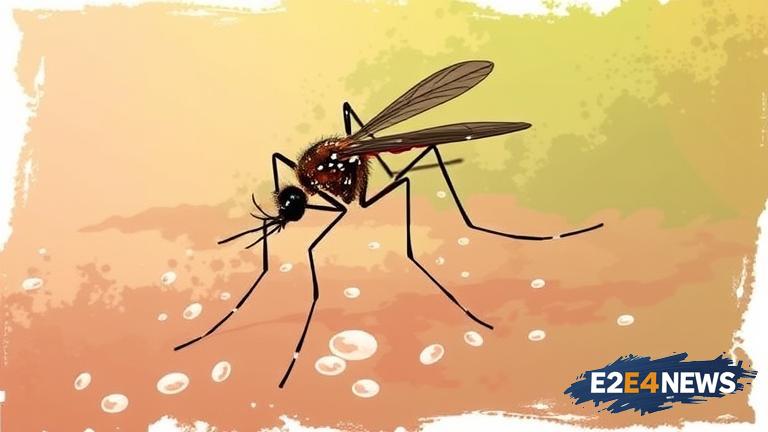Health officials in Duval and Glynn counties have reported a significant increase in mosquito-borne West Nile Virus cases, sparking concerns among residents and visitors alike. The West Nile Virus, which is primarily transmitted through the bite of an infected mosquito, can cause a range of symptoms, from mild fever and headache to severe neurological damage and even death. According to recent data, the number of reported cases in Duval and Glynn counties has surpassed previous years, with many more cases expected to be reported in the coming weeks. The increase in cases has been attributed to a combination of factors, including warm weather, heavy rainfall, and the presence of stagnant water, which provides an ideal breeding ground for mosquitoes. As a result, health officials are urging residents to take precautions to prevent mosquito bites, such as wearing insect repellent, covering exposed skin, and eliminating standing water around their homes. Additionally, local authorities are increasing efforts to control mosquito populations, including aerial spraying and ground-based treatments. Residents are also being advised to report any dead birds, which can be a sign of West Nile Virus activity, to local health officials. The Florida Department of Health has issued a warning, stating that the risk of West Nile Virus transmission is high in Duval and Glynn counties, and that residents should take immediate action to protect themselves. Meanwhile, local hospitals and healthcare providers are preparing for an influx of patients seeking treatment for West Nile Virus symptoms. The economic impact of the outbreak is also being felt, with local businesses and tourism operators reporting a decline in bookings and revenue. In response to the outbreak, community leaders are organizing public awareness campaigns and educational events to inform residents about the risks and prevention methods. The Centers for Disease Control and Prevention (CDC) has also issued guidance on West Nile Virus prevention and treatment, which can be found on their website. As the situation continues to unfold, residents and visitors are advised to remain vigilant and take all necessary precautions to prevent mosquito bites. The West Nile Virus outbreak in Duval and Glynn counties serves as a reminder of the importance of public health infrastructure and the need for continued investment in mosquito control and disease prevention efforts. In the meantime, local residents are being encouraged to support efforts to control mosquito populations and prevent the spread of the virus. By working together, health officials, residents, and community leaders can help mitigate the impact of the outbreak and prevent further cases. The outbreak has also highlighted the need for increased funding for public health initiatives and mosquito control programs. As the number of cases continues to rise, health officials are bracing for a long and challenging battle against the West Nile Virus. The situation is being closely monitored, and updates will be provided as more information becomes available. In the face of this public health crisis, it is essential that residents and visitors take the necessary precautions to protect themselves and their loved ones. By doing so, we can all play a role in preventing the spread of the West Nile Virus and keeping our communities safe. The West Nile Virus outbreak in Duval and Glynn counties is a stark reminder of the importance of public health awareness and the need for collective action to prevent the spread of disease.
